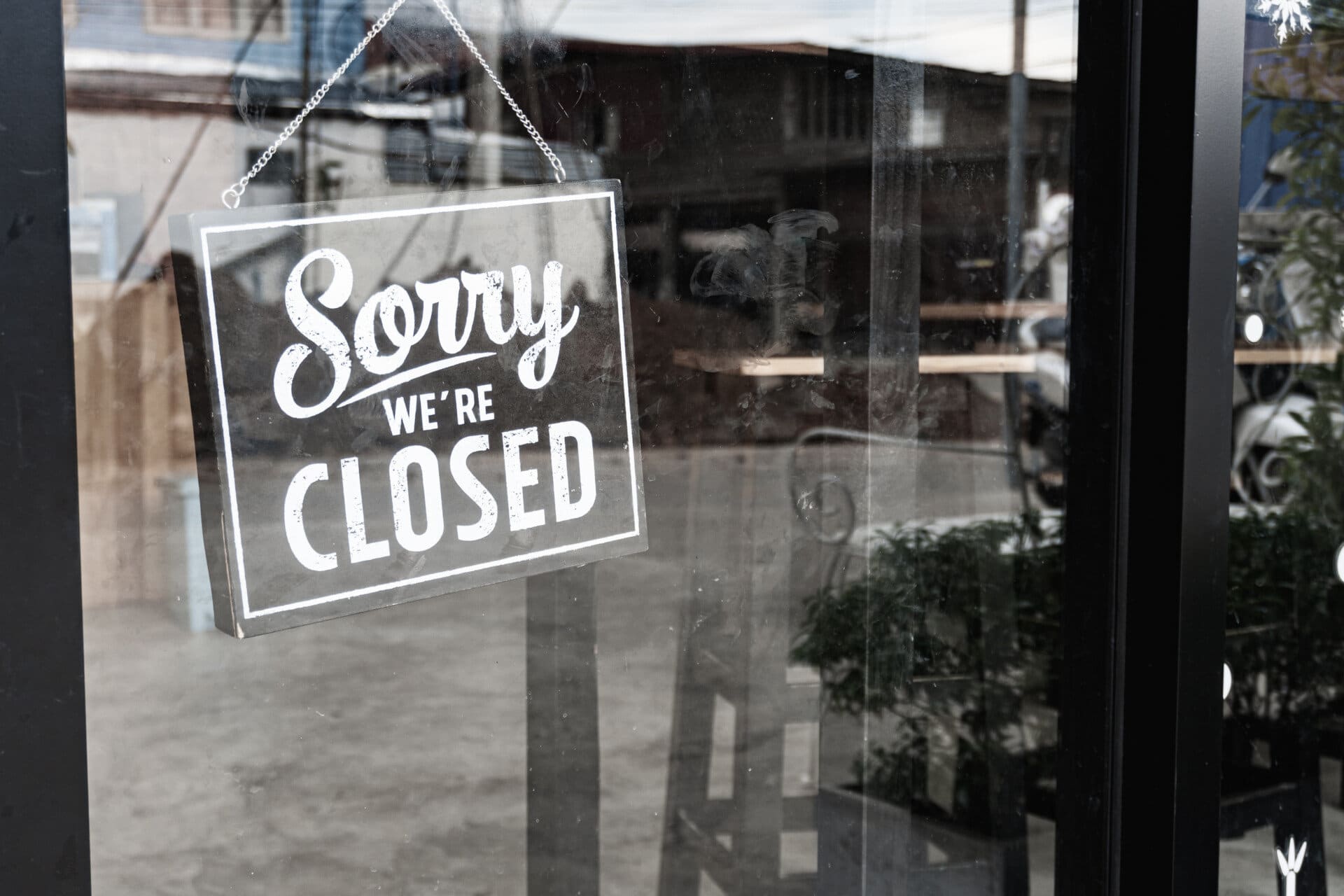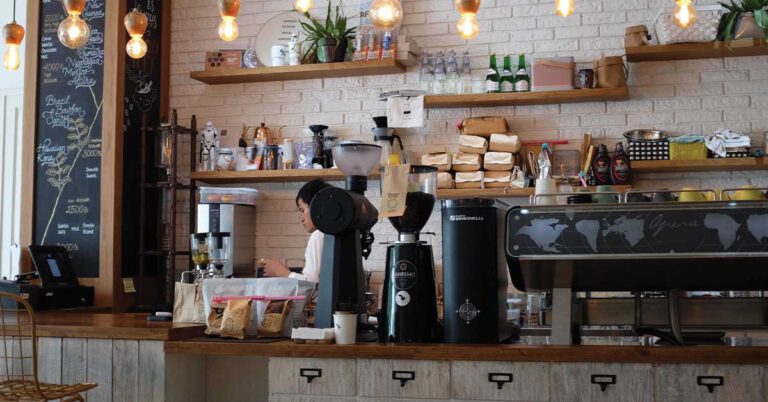Opening a restaurant is exciting.
However, as experienced restaurant owners will confirm, achieving culinary success requires careful planning and smart choices. According to a University of Central Florida study, about 30% of all new restaurants fail in their first year.
There are numerous reasons why so many restaurant startups fail—and fail so quickly. The lack of proper planning is the common denominator for all those issues.
While the look and feel of your dining place are crucial, your restaurant’s plan goes beyond just its appearance or menu. In many cases, it’s the small thing that entrepreneurs ignore while starting their restaurant business that leads to their failure.
But this doesn’t have to happen in your case.
Let’s go over 7 key mistakes to steer clear of when planning a restaurant business.
Not Clearly Defining Your Concept
One critical mistake that restaurants often make is not clearly defining their concept. Your restaurant’s concept is the essence of what sets it apart – it’s the unique identity that attracts customers.
A vague or poorly defined concept may result in inconsistent branding, menu offerings, and overall customer experience. For instance, imagine a restaurant that claims to offer a fusion of international cuisines without a cohesive theme or identity – this lack of clarity can leave customers unsure of what to expect, hindering the restaurant’s overall success.
To avoid this, take the time to articulate your concept concisely. Consider what makes your restaurant special – whether it’s a specific cuisine, a unique ambiance, or a particular theme.
Clearly communicate this concept to your team, ensuring everyone is aligned with the vision. This clarity not only enhances your brand but also helps in making strategic decisions that align with your restaurant’s identity.
Not Knowing Your Target Customer
Who is your target customer?
Your target customers aren’t just “everyone”; they are the ones most likely to appreciate what you have to offer.
When you don’t know your target customer, you risk offering a menu, ambiance, or experience that doesn’t resonate with anyone in particular. This lack of focus can result in a bland, generic appeal that fails to capture the loyalty of a specific demographic.
So, ensure you identify the characteristics, preferences, and behaviors of your potential customers. Consider factors like age, interests, spending habits, and dining preferences. Use this information to shape your menu, marketing strategies, and the overall atmosphere of your restaurant.
Not Revisiting the Restaurant Business Plan
Neglecting your restaurant business plan is a big no-no.
Why?
A business plan isn’t a one-and-done—it keeps you on track, helps you foresee challenges, and ensures you allocate resources wisely. It’s the backbone of your operation. Ignore it, and you risk financial chaos and missed opportunities.
More importantly, a business plan is not something you create once and forget about—it’s a living document that should be revisited and updated regularly.
Not Creating a Practical Budget
A budget serves as a roadmap for allocating resources and making informed financial decisions. Without it, many businesses may struggle to manage their finances effectively.
A practical budget should take into account all potential expenses, including rent, utilities, employee wages, and inventory costs.
More importantly, keep it flexible — review and update it as you move along. Circumstances change, and your financial plan should adapt accordingly. Keep a close eye on your cash flow, and don’t hesitate to adjust as needed.
There are many accounting software you can use to easily track your expenses.
More importantly, consult with your accountant regularly and learn how to properly manage your finances to avoid issues such as waiting for the last day to file taxes. Being proactive in financial management ensures that your restaurant remains financially stable and capable of weathering any economic challenges that may arise.
Not Having an Marketing Plan
Marketing is a crucial aspect of running a restaurant, and not having a solid plan in place can be a significant mistake. A marketing plan helps you reach your target audience, build brand awareness, and drive customer engagement.
Without a marketing plan, your restaurant may struggle to stand out in a competitive market. It’s not just about having great food; it’s about letting people know about it. Lack of promotion can lead to low foot traffic and revenue.
For instance, while positive customer reviews are valuable, actively promoting your restaurant through various channels is essential. Social media, online platforms, and traditional advertising are key to reaching a broader audience.
Neglecting Your Employees
Happy employees contribute to a positive work environment, and their satisfaction directly impacts the success of your establishment. In fact, data from the prestigious Oxford University shows that employees are about 13% more productive if they are happy in their roles.
Unhappy employees may not deliver the service level that keeps customers returning.
Investing in employee care involves fair compensation, providing training opportunities, and fostering a supportive workplace culture. Recognition and acknowledgment of their hard work go a long way in boosting morale and job satisfaction.
Remember, satisfied employees are also more likely to be loyal, reducing recruitment and training costs.
Ignoring Data Security for Online Payment
Online payment is much more prevalent now than a few years ago.
So, now more than ever, you need to pay attention to the security of your online payment processes. Customer trust is on the line, and a data breach can have severe consequences.
When you neglect data security, you expose your customers’ sensitive information to potential cyber threats. This damages your reputation and can result in legal and financial repercussions.
When accepting payments over the Internet, it’s crucial to ensure that your entire IT infrastructure complies with PCI DSS or Payment Card Industry Data Security Standard regulations. Otherwise, you not only risk fines but also a permanent stain on your reputation.
Overlooking Technology Trends
Technology is crucial in streamlining operations, enhancing customer experience, and staying competitive.
Overlooking technology trends means missing out on tools to make your restaurant more efficient. For example, instead of boring people to death with long menus, why not just use QR codes so customers can quickly scan them and make orders through their devices? This makes the process faster and more efficient for everyone.
Additionally, tools like online ordering systems, mobile apps, and POS systems can streamline order processing and improve overall efficiency.
Conclusion
Before you jump all in into your dream business, take the time to understand what you need to prioritize and what mistakes you should avoid to guarantee a successful restaurant business.
The 7 pitfalls we have listed above are some of the common mistakes people make that end up being detrimental to their businesses. Take note of them and go for the win.




